Black Book of Pushbacks
Presentation of Black Book of Pushbacks and news in arabic by Khalid and Jošt.
Black Book of Pushbacks - https://push-forward.org/novica/izid-crne-knjige-o-nezakonitih-vracanjih-na-mejah-eu
THE BLACK BOOK OF PUSHBACKS
Brutal accounts of violent push-backs documented in newly-released ‘The Black Book of Pushbacks’
Detailed testimonies renew calls for an end to impunity for EU border violence
A 1500-page ‘The Black Book of Pushbacks’ that documents the horrific violence suffered by over 12,000 people at the hands of authorities on the EU’s external borders has been released today on December 18th, International Migrants Day by The Left in the European Parliament.
Compiled by Border Violence Monitoring Network (BVMN) the 2-volume book is a collection of hundreds of testimonies of migrants and asylum seekers who have experienced human rights violations at external borders. The ‘Black Book’ includes:
- 892 group testimonies detailing the experiences of 12,654 people;
- the violence many endured in Italy, Greece, Croatia, Slovenia and Hungary along the so-called ‘Balkan route’ including maps, data, photos and other key information;
- the types of suffering and violence perpetrated by border agents, member state police forces, soldiers - even guard dogs;
- many of the incidents documented could be clearly described as sadistic, merciless, humiliating and degrading.
By bringing to light the suffering, the Black Book of Pushbacks holds EU institutions and member state governments accountable for the inhumane and degrading treatment of the people. Push-backs are illegal under international law, but member states authorities have ignored such breaches of human rights which are contrary to the EU’s founding principles and international obligations. In addition, this ‘Black Book’ only includes incidents that have been directly recorded by BVMN; the real number of victims is likely to be much higher.
Slovenia is the first Schengen country on the Balkan route (after Greece), and one of the main transit points since the route shifted through Bosnia in 2018. Though the distance between Bosnia and Slovenia is only around 70 kilometres, the walk through Croatia usually takes 10 days or more, and results finally in a forced return to Croatia.
Research and evidence collected by BVMN partner InfoKolpa, Amnesty International and the Ombudsman office of the Republic of Slovenia confirm that there is a systemic denial of access to asylum in Slovenia, carried out through malversation of procedures. On police stations asylum requests are ignored by the police, people-on-the-move are faced with violence and threats or are misled into signing documents, thinking that they will be transferred to an asylum camp. Instead, they are subjected to an informal readmission procedure, leaving them without an option to appeal, or any other procedural safeguard against their removal.
This practice became systematic in early 2018 when official analytics indicated a sharp decrease in numbers of registered intentions to seek asylum and an increase in readmissions. A clear example of the above is the border police station Črnomelj, where the number of filed intentions to seek asylum dropped from 371 in May 2018 to only 13 in June 2018 despite an increase in recorded irregular border crossings. This decrease was the result of a series of internal police directives, at least one of which was signed by Marko Gašperlin, current chairman of the management board of Frontex. From 2018 to 30.11.2020 there have been 25,296 people returned from Slovenia to Croatia via readmission.
The pushbacks from Italy and Austria to Slovenia are conducted in a similar way, through readmission. In 2020 there were 1056 readmissions from Italy, and there was also an increase of readmissions from Austria. The persons readmitted are pushed to Croatia and further to BiH. The issue of readmissions to Croatia was confirmed this year by a court in Genova, which stopped a Dublin deportation of a Pakistani citizen to Slovenia due to systemic deficiencies in the Slovenian asylum system and a high risk of further deportation to Croatia.
From mid-2020 on, we have also seen a new practice: detention of asylum seekers and fast-track asylum decision-making. Police detained people in containers without access to direct sunlight while being intimidated by police dogs. This detention was ordered by the director of police Anton Travner saying that people should be in detention until the Ministry of Interior issues a negative asylum decision, so they could be returned to Croatia. Due to degrading treatment, several protests including hunger strikes broke out in the detention centre in Postojna. This change in policy bears resemblance to the “Hungarian model” of quick asylum requests processing under detainment.
There are even attempts to legalize pushbacks. The proposed amendments of the Alien Act, once accepted, would upon declaration of “complex migration crisis’ by the majority in the parliament allow for a suspension of the right to asylum. By denial of the right to asylum and by conducting readmissions to Croatia, Slovenia is violating the rights of protection against collective expulsion and torture. Despite the overwhelming evidence, court decisions and hundreds of testimonies, these violations are still officially denied.
////////////ARB/////////////////////////
توثيق روايات وحشية عن عمليات صد عنيفة في "الكتاب الأسود" الذي صدر حديثًا
وتجدد الشهادات المفصلة الدعوات إلى إنهاء الإفلات من العقاب على أعمال العنف على الحدود في الاتحاد الأوروبي
صدر "الكتاب الأسود" المكون من 1500 صفحة والذي يوثق العنف المروع الذي عانى منه أكثر من 12000 شخص على أيدي السلطات على الحدود الخارجية للاتحاد الأوروبي اليوم - اليوم العالمي للمهاجرين - من قبل اليسار في أوروبا
جمعته شبكة مراقبة العنف على الحدود (BVMN) وطُبع على مجلدين ، "الكتاب الأسود للردود" عبارة عن مجموعة من مئات الشهادات للمهاجرين وطالبي اللجوء الذين تعرضوا لانتهاكات حقوق الإنسان على الحدود الخارجية.
يتضمن "الكتاب الأسود":
- 892 شهادة جماعية تفصّل تجارب 12654 شخصاً ؛
- العنف الذي تعرض له الكثيرون في إيطاليا واليونان وكرواتيا وسلوفينيا والمجر على طول ما يسمى "طريق البلقان" بما في ذلك الخرائط والبيانات والصور وغيرها من المفاتيح
من خلال تسليط الضوء على المعاناة ، يريد أعضاء البرلمان الأوروبي اليساريون و BVMN أن تخضع مؤسسات الاتحاد الأوروبي وحكومات الدول الأعضاء للمساءلة عن المعاملة اللاإنسانية والمهينة للناس.
(كجزء من الإطلاق ، سيقدم أعضاء البرلمان الأوروبي اليساري مالين بيورك وميغيل أوربان الكتاب الأسود بشكل رمزي إلى مفوضة الاتحاد الأوروبي للجوء إيلفا جوهانسون في بروكسل في الساعة العاشرة صباحًا اليوم)
تعتبر عمليات الإعادة غير قانونية بموجب القانون الدولي ، لكن سلطات الدول الأعضاء تجاهلت منذ فترة طويلة مثل هذه الانتهاكات لحقوق الإنسان التي تتعارض مع المبادئ التأسيسية للاتحاد الأوروبي والالتزامات الدولية.
بالإضافة إلى ذلك ، يتضمن هذا "الكتاب الأسود" فقط الحوادث التي تم تسجيلها مباشرة بواسطة BVMN ؛ من المرجح أن يكون العدد الحقيقي للضحايا أعلى من ذلك بكثير.
في حديثها عن إطلاق "الكتاب الأسود" ، قالت الألمانية ، عضو البرلمان الأوروبي ، كورنيليا إرنست (Die Linke):
"خلال فترة وجودي في البرلمان الأوروبي ، زرت العديد من الأماكن داخل وخارج حدود الاتحاد الأوروبي: لامبيدوزا ، ليسفوس ، أدرنة ، بيهاتش ، بريشيفو. أينما ذهبنا ، وجدنا الأطفال والنساء والرجال الذين كانوا يعانون ".
ومع ذلك ، فقد ازداد الوضع سوءًا في السنوات الأخيرة. لقد صدمنا للغاية من الروايات التي لا نهاية لها عن العنف القاسي والسادي والمهين التي تذكرنا بالديكتاتوريات الوحشية ".
"هذا" الكتاب الأسود "يلقي بعض الضوء الذي تمس الحاجة إليه على هذا الفصل المظلم من الاتحاد الأوروبي. ونأمل أن يساهم في وضع حد للجرائم ، ومحاسبة الحكومات المسؤولة ".
وأضاف هوب باركر ، المتحدث باسم BVMN:
"يجمع هذا الكتاب أربع سنوات من العمل من قبل BVMN ، وجمع ما يقرب من 900 شهادة عن عمليات صد ورد عنيفة على الحدود الأوروبية."
وعلى الرغم من أن هذه الاتهامات قد قوبلت بإنكار من الدول التي ارتكبت الجريمة (في حق المهاجرين) ، فإن ما نقدمه في هذه الصفحات هو تحليل للأنماط والأدلة المصورة التي تكشف عن ممارسة منهجية مستمرة. وهذه هي القصص التي تمكنت الشبكة من تسجيلها ، فالواقع أوسع بكثير وأبعد مدى ".
وقالت: "ندعو إلى وضع حد للإفلات من العقاب ، وتجديد الالتزام بالمساءلة ، وكلاهما سيعمل على إنهاء مثل هذه الانتهاكات الوحشية لحقوق الإنسان"
Program was finacialy supported by:
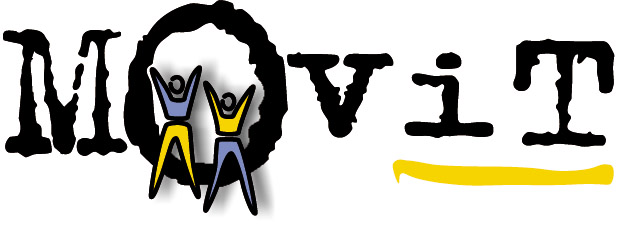


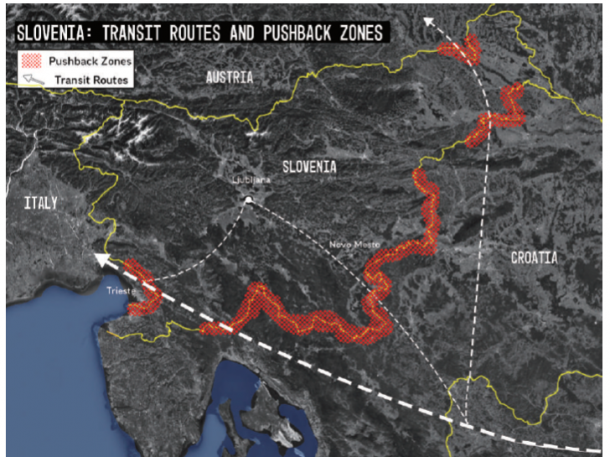



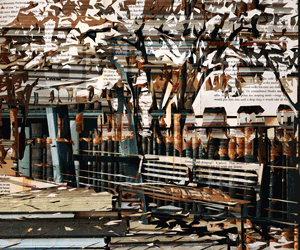
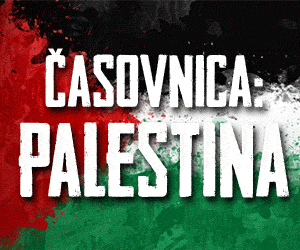







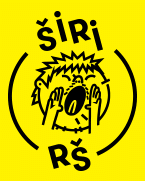
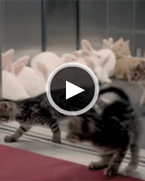







Prikaži Komentarje
Komentiraj